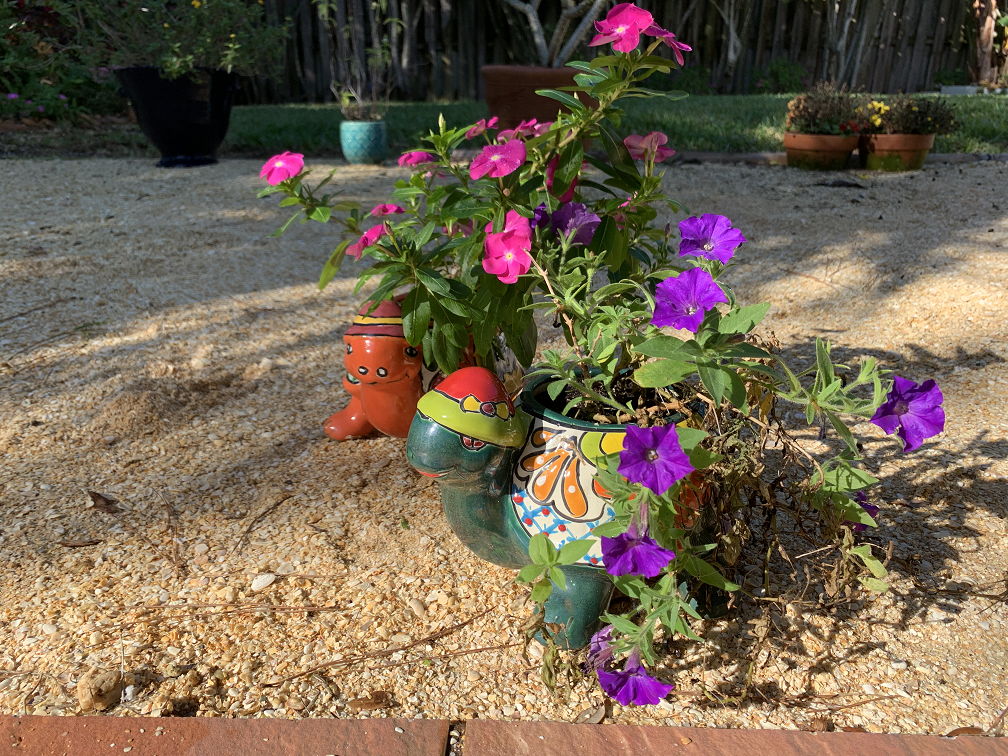How to Avoid Public Disclosure of a Real Estate Sale Price by Using a Florida Land Trust
Posted: December 8th, 2022
A Word of Caution
This discussion presents a greatly simplified explanation of an example of how to use a Florida land trust. Readers must be aware that land trusts of the kind discussed in this blog are not lawful in all 50 states. Trying to use a land trust in a state in which they are not lawful will likely result in unintended and harmful results. In all things, the author recommends that readers consult competent local legal counsel before taking any action.
Maintaining Privacy in Your Real Estate Sale
 In Florida, public disclosure of the change of ownership and sale price in a real estate transaction is the norm. Information relating to real estate sales is freely available on the property appraiser and clerk of court county recorder’s websites, including the names of the buyer and seller, as well as the sale price.
In Florida, public disclosure of the change of ownership and sale price in a real estate transaction is the norm. Information relating to real estate sales is freely available on the property appraiser and clerk of court county recorder’s websites, including the names of the buyer and seller, as well as the sale price.
However, there are times when either or both parties wish to avoid public disclosure of the change of ownership and/or the sale price for various reasons. In this blog post, we will discuss how parties can avoid public disclosure of the purchase and sale price (and even the fact of a sale at all) in a real estate purchase and sale transaction by using a Florida land trust.
Why You Might Want to Avoid Public Disclosure of Your Real Estate Transaction
To explain how to avoid public disclosure of the change of ownership and the sale price in a real estate sale transaction, consider the following example:
Arthur, 53 years old, owns a small business and the real estate on which the business is operated. Arthur has been operating the business himself since before he was Steve’s age. He is ‘totally burned out’ and trying to avoid a ‘midlife crisis’.
Meanwhile Steve, 32 years old, owns a similar business in a nearby town, and wishes to expand into Arthur’s market. Steve and Arthur have secretly worked out a deal in which Steve will buy the business and the land from Arthur on the following terms:
Steve will pay Arthur $1,000,000.00 for the land and another $500,000.00 for the business (note: our focus is on the land sale; sale and price of non-real estate business assets aren’t generally publicly disclosed). Arthur will hold a note and mortgage for half of the price of the land (i.e. $500,000.00 cash paid at closing and a $500,000.00 note and mortgage). Steve will pay Arthur cash for the business.
As is often the case in the sale of a small business, Steve wishes that Arthur stay on and run the shop for at least a year after the sale to run the shop, hoping to avoid employee and customer attrition in the aftermath of the sale. Arthur and Steve don’t want the employees or the customers to know that the sale has taken place (or the terms of the deal). Steve wants the employees to all think that Arthur is still the owner and their boss, and is concerned that there may be a dilution in Arthur’s apparent authority over the employees if they are aware of the change in ownership.
Arthur doesn’t want anyone in his family (other than his wife) to know that the sale has taken place because he doesn’t want any of his children asking him for money or to relocate closer to grandchildren, among other things.
Using a Florida land trust, we can structure the deal between Arthur and Steve so that neither the fact of the sale nor the terms (price and loan) are publicly disclosed.
Structuring a Florida Land Trust for This Scenario
 Using a Florida land trust, Arthur and Steve can avoid the public disclosure of either the fact of the sale of the real estate or of the terms as follows. Ideally, all of the following would (and should) be agreed upon in the initial contract between Arthur and Steve (or an addendum shortly after, usually during the ‘due diligence’ or ‘inspection’ contingency period).
Using a Florida land trust, Arthur and Steve can avoid the public disclosure of either the fact of the sale of the real estate or of the terms as follows. Ideally, all of the following would (and should) be agreed upon in the initial contract between Arthur and Steve (or an addendum shortly after, usually during the ‘due diligence’ or ‘inspection’ contingency period).
Step 1: Arthur creates trust agreement
The first step to creating the land trust is the creation of the ‘trust agreement’ between Arthur, as the trustee, and Arthur, as the sole beneficiary.
The trust agreement is the written document which details the relative rights and duties of the trustee and the beneficiary and should thus be executed before the property is conveyed (deeded over) to the trustee to clarify the terms on which the property has been conveyed to the trustee. The trust agreement does NOT get recorded in the public land records.
Within the land trust, Arthur must make an important election (expressly allowed by the Florida Land Trust Act) to declare and define the beneficial interest of the trust agreement to be personal property rather than real property.
Defining and declaring the beneficial interest to be personal property rather than real property enables transfers and hypothecation (mortgaging) of the beneficial interest to be made without being recorded in the public land records.
Step 2: Arthur conveys (deeds) the real estate into the land trust
In the second step to the creation of the Florida land trust, Arthur must sign and record in the public land records a deed from himself, in his individual capacity, to himself, as trustee of the new land trust.
Because Arthur is the initial beneficiary of the land trust, only a ‘minimal’ documentary stamp tax of $0.70 must be paid on the deed from Arthur individually to Arthur as trustee. Because only minimal documentary stamp tax of $0.70 will have been paid on the deed, when the deed is recorded, it will appear to the public that Arthur hasn’t sold the property, but rather that he has merely put the property into a ‘normal’ estate planning type of trust with himself as trustee and himself as beneficiary. Nobody will be able to tell from the mere recording of the deed alone that Arthur has either sold the property or placed the property into a Florida land trust.
The type of trust isn’t apparent from the deed, so it will appear to the public–and any of Arthur’s employees or family who happen to see the deed–that Arthur is merely doing some estate planning by putting the property into a ‘normal’ estate planning type of trust, which is a more common but totally different type of trust than a land trust.
Step 3: Arthur assigns the beneficial interest of the land trust to Steve
After steps one and two above, the land trust is created and Arthur owns 100% of the beneficial interest of the trust as the sole trustee of the trust. As step three, Arthur assigns all (100%) of the beneficial interest of the land trust to Steve by executing an ‘assignment of beneficial interest’.
In our example, Steve agreed to pay Arthur $1,000,000.00 for the land, putting $500,000.00 down, and Arthur held a note for the balance of $500,000.00. This third step constitutes the assignment of beneficial interest, which is the ‘sale’ for $1,000,000.00 as agreed upon. However, rather than a sale of the real property interest which Arthur owned before creating the trust by assigning the beneficial interest of the trust to Steve, Arthur has transferred (sold) to Steve the rights that come with being the owner of the beneficial interest of the trust, which is the right to direct the actions of the trustee–but as we will see below, in Step 4, in this case, those rights are subject to the rights of Arthur until Steve pays Arthur the remaining $500,000.00 balance due over the $500,000.00 down at purchase. In other words, rather than selling the real estate, which is a real property right and must be recorded in the public land records, Arthur is selling Steve the beneficial interest of the new land trust which is a personal property right, and the transfer of which does not need to be recorded in the public land records. This distinction between a real property right in the land versus a personal property right in a land trust is the key to understanding land trusts and which makes it possible to conduct such transactions outside of the public eye.
The assignment of beneficial interest does NOT get recorded in the public land records.
Although the assignment of beneficial interest does not get recorded in the public land records, documentary stamp tax is due on the transfer in the same amount as would be due on the sale of the underlying real estate.
The documentary stamp tax which would normally be collected by the county recorder’s office for the benefit of the Florida Department of Revenue at the time of recording the deed in the public land records in the sale of real estate rather than personal property is instead paid directly to the Florida Department of Revenue by filing return privately to the Department.
After assigning all of the beneficial interest to Steve, Arthur remains as the sole trustee, at least while the remaining balance of the $500,000.00 is unpaid. Because the assignment of beneficial interest is not recorded and Arthur remains as the sole trustee, there is no new deed to record in the public land records, which is normally the evidence to the public of a change in ownership.
After step three is complete and the land trust has been created, Steve owns 100% of the beneficial interest, but he has only paid Steve $500,000.00 at closing, with the balance of $500,000.00 remaining due to Arthur. This would be potentially problematic because in a land trust the owner of the beneficial interest by default has the ‘power of direction’, which is the right to direct the actions of the trustee, i.e. to direct the trustee to sign a lease, mortgage, or deed on the real property itself (as distinguished from the personal property right which is the beneficial interest per the statutory election made in the creation of the land trust).
This issue is addressed threefold:
- First, in the trust agreement, a provision should be included that provides that the power of direction does not pass to Steve from Arthur (notwithstanding the assignment of 100% of the beneficial interest to him) until the balance of the $500,000.00 due to Arthur is paid.
- Second, Arthur remains as trustee, meaning that nobody but he can sign a new lease, mortgage, or deed on the real estate directly.
- Third, in step four (explained below), Steve will give Arthur a promissory note and a ‘chattel mortgage’ on the beneficial interest to secure the unpaid balance due to Arthur.
Step 4: Steve executes a chattel mortgage to Arthur on the beneficial interest
To secure the loan to Steve from Arthur for the remaining balance due to Arthur of $500,000.00, Steve signs a promissory note and a chattel mortgage on the beneficial interest.
A chattel mortgage is a mortgage on personal property (rather than real property). As with the assignment of beneficial interest, because it is a mortgage on personal property rather than real property, the chattel mortgage is NOT recorded in the public land records.
Similarly, the taxes which would normally be paid to the county recorder’s office at the time of recording the mortgage are instead paid directly to the Florida Department of Revenue by a privately filed return.
The Florida Land Trust Act expressly provides that being a creditor to the beneficiary is NOT a breach of the trustee’s fiduciary duties to the beneficiary.
The Result of Establishing a Florida Land Trust
 To the public, it does not appear that any transaction has taken place between Arthur and Steve. Rather, it appears that Arthur has simply put the property into a trust of which he is the sole trustee, which property owners often do for estate planning and probate avoidance purposes. Nobody will be able to tell by the recordation of the deed that Arthur has sold the ownership and control of the property to Steve by the assignment of the beneficial interest of the land trust.
To the public, it does not appear that any transaction has taken place between Arthur and Steve. Rather, it appears that Arthur has simply put the property into a trust of which he is the sole trustee, which property owners often do for estate planning and probate avoidance purposes. Nobody will be able to tell by the recordation of the deed that Arthur has sold the ownership and control of the property to Steve by the assignment of the beneficial interest of the land trust.
Meanwhile, behind the scenes, Steve has become the owner of 100% of the beneficial interest of the land trust, but is subject to the chattel mortgage to Arthur.
Within the trust agreement, a provision is made that Arthur (or someone of his choosing) is to remain as trustee until Steve has paid off the balance due to Arthur, as provided under the promissory note and chattel mortgage to Arthur. Once Steve has paid the full balance due to Arthur, he can either replace Arthur as trustee, appoint a trustee of his (Steve’s) choosing, or terminate the land trust and deed the property to himself or an LLC that he controls. The trust agreement would also provide that Steve may direct that the property be sold but that Arthur must be paid off at the time of any such sale.
If desired, Arthur could waive such rights and allow a sale to proceed by remaining as trustee pending payment of the balance due to him by Steve’s buyer on the balance still due on the original deal between Arthur and Steve. Until such time, Arthur, as trustee of the land trust, remains the owner of record in the eyes of the public, and it would appear that Arthur has merely engaged in some estate planning rather than a sale of the rights to the ownership and control of the property through the assignment of the beneficial interest of the land trust by Arthur to Steve.
Because Arthur is the trustee, he knows that title to the real property cannot be conveyed by Steve to a new owner without Arthur being paid off in full on the note and chattel mortgage (unless Arthur wishes to allow such a sale).
Shrewd Decisions in Your Real Estate Transactions
Without intimate knowledge of Florida real estate law, the ability to establish such a situation would not be readily apparent to the average business owner. When you’re ready to take action and make changes to your real property, it’s important that you consult with a team of professionals. To learn more, call Echelon Title Services at 321-450-4770 today.

